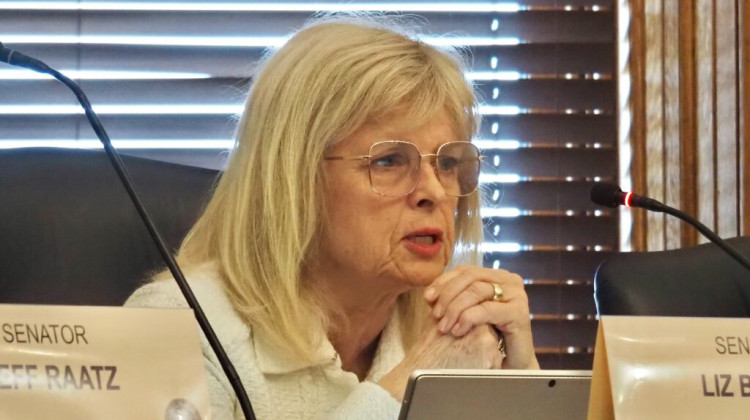
Indiana Gov. Eric Holcomb signed several bills this week that will impact the states juvenile justice system.
Eric Weddle/WFYIIndiana Gov. Eric Holcomb signed several bills this week that will impact the state’s juvenile justice system.
Senate Bill 415 will prohibit the use of a child’s statements if police lied to them. Under current Indiana law, if a member of law enforcement knowingly lies about criminal evidence, information or consequences while interviewing a child, the child’s statement can be used against them. SB 415 will keep these statements from being included in court proceedings.
The new law will not apply if police thought information they told the juvenile was true at the time, but it was later found to be false. It also does not apply to evidence discovered as a result of the child’s statement.
Throughout this legislative session, advocates and legal experts testified that police lying to children opens the door for more wrongful convictions.
Indiana law currently allows juveniles to consult with a parent before speaking with law enforcement. But supporters of the bill said that’s not enough.
In addition to discouraging police from lying to children, the new law also includes a requirement that police must attempt to notify parents if their child is arrested at school.
Another piece of legislation, Senate Bill 464, aims to fix a gap between juvenile and adult court jurisdiction.
Currently, if someone commits a crime as a juvenile but charges are not filed until after they have turned 21, neither the adult court or juvenile court has jurisdiction over the case. The Indiana Supreme Court warned the legislature to take action last year after its ruling in State v. Neukam.
Under SB 464, if the crime committed while the person was a juvenile would have been waivable to adult court at the time, then the adult court would still have jurisdiction after the age of 21. If the crime would not have been waivable to adult court, then the juvenile court will have jurisdiction.
In Indiana, certain serious offenses committed by a juvenile can be waived to adult court, depending on the severity of the crime and the age of the juvenile.
A previous version of the bill would have put all cases in which charges are not brought until after the person turns 21 into adult court.
Joel Wieneke, a senior staff attorney with the Indiana Public Defenders Council, said it remains to be seen how a juvenile court will handle the prosecution of adults.
“We're going to have to figure out how to use the statute over the next several years,” Wieneke said. “And as with any big legal change, I expect there's going to be difficulties applying it and potentially some unintended consequences.”
Holcomb also signed House Bill 1493, which eliminates costs and fees in juvenile court. Under the new law, parents do not have to pay for their child’s defense, unless the court finds that they are financially able to. The law will also apply if the Department of Child Services has custody of the child.
Several other pieces of legislation that aimed to reform the juvenile justice system did not pass this session.The bills included one that would create a minimum age to prosecute youth, and another that hoped to overhaul the process in which children are charged as adults.
Contact WFYI criminal justice reporter Katrina Pross at kpross@wfyi.org. Follow on Twitter: @katrina_pross.
Pross is a Corps Member of Report for America, an initiative of The GroundTruth Project.
 DONATE
DONATE







 Support WFYI. We can't do it without you.
Support WFYI. We can't do it without you.